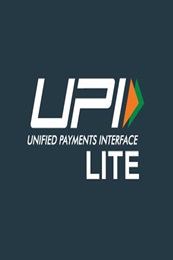Difference Between NEFT, IMPS, and RTGS Transfers
April 26, 2025

In our modern digital world, transferring money has become more convenient and accessible than ever before. The cumbersome trips to the bank are now a thing of the past; with just a few taps on your device, you can transfer funds electronically through several services like NEFT, IMPS, and RTGS.
If you're not familiar with these money transfer methods and need guidance on which to choose for your requirements, this blog post will explain each method and its benefits, as well as clarify the key differences between NEFT vs IMPS vs RTGS transfers.
NEFT Transfers
NEFT or National Electronic Funds Transfer is a centralised payment system operated by the Reserve Bank of India (RBI). It allows users to transfer funds electronically from one account to another across India. One of the key advantages of NEFT is its availability round the clock.
Benefits of NEFT:
- Convenient: NEFT transfers can be done online or offline, making it easily accessible for users.
- Quick: While NEFT transactions are not instant like IMPS, they are still faster compared to traditional methods like issuing cheques or demand drafts (DD).
- Economical: NEFT charges are nominal and vary based on the amount transferred.
- No Need for Cheques or DDs: Unlike traditional methods, NEFT does not require you to submit any physical cheques or DDs for money transfer.
IMPS Transfers
IMPS or Immediate Mobile Payment Services is a real-time inter-bank money transfer system that allows users to transfer funds instantly on a 24x7 basis, even on bank holidays. It is accessible through various platforms, including mobile apps, internet banking, SMS banking, payment links, and ATMs.
Benefits of IMPS:
- Instant Transfers: IMPS ensures quick and secure money transfers, with funds getting credited within a few seconds.
- No Need for IFSC Code and Account Number: Unlike NEFT and RTGS, which require you to know the beneficiary's IFSC code and account number, IMPS allows you to perform transfers without these details.
- Accessibility: IMPS is available 24x7 throughout the year, making it convenient for users who need to transfer funds urgently.
- International Transfers for NRIs: IMPS money transfer services are also available for NRI customers to transfer funds from an NRI account to the account of an Indian resident.
RTGS Transfers
RTGS or Real-Time Gross Settlement is another electronic funds transfer system operated by the RBI. The key difference between NEFT and RTGS is that RTGS transactions are processed in real-time, meaning the payment is settled immediately.
Benefits of RTGS:
- Ideal for Large Transactions: RTGS is designed for high-value transactions where immediate clearing is required, such as real estate purchases or business payments.
- Minimised Risk: With RTGS transfers, there is less possibility of counter-party default as the funds are settled in real-time.
- Security: Since RTGS transfers occur online, there is no risk of physical cheques being stolen or instances of forgery.
- Efficient Capital Management: Organisations can use RTGS to manage their business capital efficiently by making large fund transfers in a single transaction.
Key Difference Between NEFT, IMPS and RTGS
Here is a comparison table summarising the differences between NEFT, IMPS, and RTGS:
| Method | Transaction Speed | Fees and Charges | Network Compatibility |
| NEFT | Up to a few hours (processed in batches) | Nominal charges varying with the amount transferred | Accepted by all banks and financial institutions |
| IMPS | Instant (real-time transfer) | Varies based on the bank/payment service provider | Accessible through various platforms |
| RTGS | Within a few minutes (individual processing) | Higher charges compared to NEFT | Available for large-value transactions |
Final Thoughts
NEFT, IMPS and RTGS are all reliable money transfer services that cater to different needs. NEFT is suitable for individuals looking for a cost-effective and convenient way to transfer funds within India. IMPS is the go-to option for users who need instant inter-bank money transfers round the clock. RTGS is ideal for businesses that require immediate clearing of high-value transactions.
Enjoy easy banking with Ujjivan Small Finance Bank. Save more with our high-interest Savings Account and Deposit products. Need cash for your business or personal needs? Apply for MSME Loans or Micro Loans with us – we offer competitive rates and quick disbursal. We also offer vehicle loans and home loans tailored for your unique requirements. Experience a smooth banking journey with Ujjivan SFB!
FAQs
1. What happens if an RTGS transfer fails?
If an RTGS transfer fails, the funds will be returned to the sender's account within two hours of the transaction initiation.
2. Can I use IMPS to make credit card payments?
Yes, you can use IMPS to make credit card payments. Most banks provide this facility through their mobile banking apps or internet banking platforms.
3. Are there any transaction limits for NEFT transfers?
No, NEFT transactions do not have any specific limits. You can transfer any amount using NEFT.
4. Can I use RTGS to transfer money to another person's account in a different bank?
Yes, RTGS allows you to transfer funds to accounts in different banks as long as they are part of the RTGS network.
5. How long does it take for an IMPS transfer to be credited?
IMPS transfers are generally credited within seconds, making it an ideal option for instant money transfers.
6. Can I schedule future-dated transfers using NEFT?
Yes, some banks allow you to schedule future-dated transfers with NEFT. You can specify the date and time for the transfer to take place.
7. Can I use NEFT to transfer money internationally?
No, NEFT is available only for domestic transfers within India.
8. Are there any limits on the amount that can be transferred using RTGS?
Yes, RTGS transactions have a minimum amount of ₹2 lakhs and no maximum limit, making it suitable for high-value transfers.
9. Can I use IMPS for fund transfers from an NRI account?
Yes, IMPS money transfer services are available for NRI customers to transfer funds from an NRI account to the account of a resident of India.
10. Is it possible to cancel an NEFT transfer once initiated?
Once an NEFT transfer is initiated, it cannot be cancelled or reversed. It is essential to verify all details before initiating the transaction.
Latest Blogs

Best Current Accounts in India: Simplify Your Business Transactions
April 22, 2025
In the fast-evolving world of Indian business, having a reliable current account is more than just a financial necessity—it’s a strategic asset.

Top Savings Account Schemes to Start the New Financial Year 2025–26
April 19, 2025
The beginning of a new financial year isn’t just about filing taxes or revisiting your investment strategy—it's also the perfect time to re-evaluate where you park your money.

Disappointed with Your Savings Account? Switch to This Small Finance Bank
April 17, 2025
In April 2025, following the Reserve Bank of India’s (RBI) repo rate cut from 6.25% to 6%, several major banks have reduced interest rates on savings accounts.

7 Steps to Get Started Your Home Loan Application Process in India
April 16, 2025
Buying a home is one of the biggest dreams for most of us. But with rising property prices, it's not always possible to pay the full amount upfront. That’s where a home loan in India becomes a helpful option.

How to Keep Your Money Growing in a Volatile Market: A Comprehensive Guide
April 15, 2025
The Indian financial landscape in early 2025 has been quite unpredictable. According to Reuters, equity mutual fund inflows slumped to an 11-month low in March 2025 due to growing concerns around sectoral imbalances and global uncertainties.





